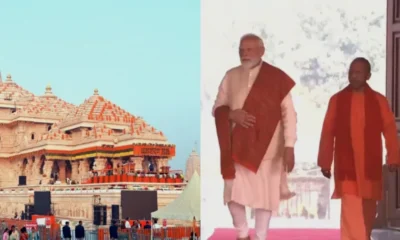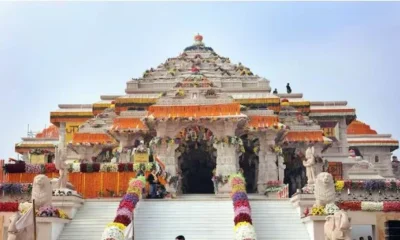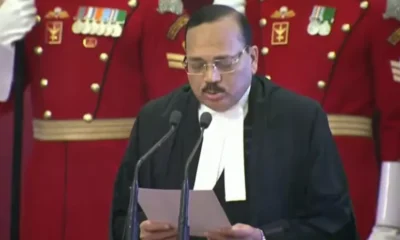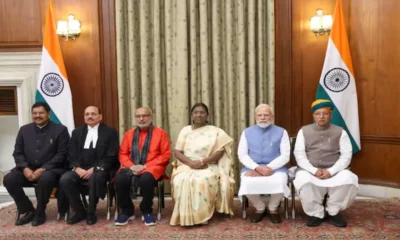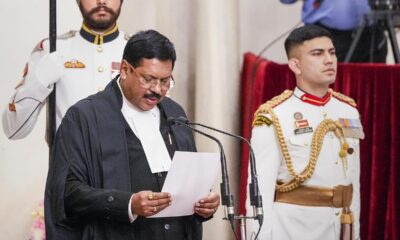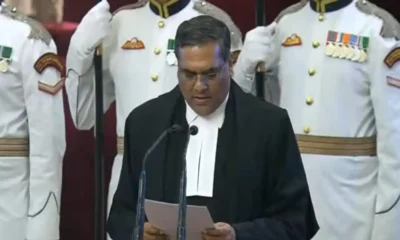As efforts to mediate a final settlement between rival Hindu and Muslim parties in the Ayodhya title dispute cases failed, a Constitution Bench led by Chief Justice of India (CJI) Ranjan Gogoi said today (Friday, Aug 2) that the court will commence hearing the appeals from August 6 on a day to day basis.
“Mediation didn’t result in any kind of settlement,” said Chief Justice of India (CJI) Ranjan Gogoi in a six-minute hearing.
The 5-judge Constitution Bench, also comprising Justices SA Bobde, DY Chandrachud, Ashok Bhushan and S Abdul Nazeer, said the appeals of Nirmohi Akhara and deity Ram Lalla would be heard first, overruling objection of senior advocate Rajeev Dhavan, for the Muslim parties, who asked why the Bench chose to hear these two parties first. He said some of the Muslim parties had filed first.
The Bench said it may consider his submission that, in that event, he be given 20 full days to argue his case and his submissions should not be curtailed.“We will see about it… Let us start hearing the appeals,” Chief Justice Gogoi replied.
On July 18, the Bench had asked the mediation committee led by former Supreme Court judge FMI Kalifulla to submit a report on the outcome of mediation proceedings held between July 31 and August 1 with Hindu and Muslim parties to amicably resolve the over 70-year-old Ramjanmabhoomi-Babri Masjid title spat.
On July 9, an application was filed by Gopal Singh Visharad, an original claimant to the disputed land who filed a title suit way back in 1950, through his survivor Rajendra Singh, claiming that the Justice Kalifulla committee was making no progress. The application urged the court to stop mediation and start adjudication on the pending Ayodhya appeals.
The Bench had sent the dispute for mediation on March 8 this year, in the hope that mediation would spell a peaceful end to the volatile dispute between the members of the two religious faiths. It set up a panel comprising former Supreme Court judge FM Kalifulla, spiritual guru Sri Sri Ravishankar and senior advocate Sriram Panchu to explore an amicable settlement.
The Constitution bench had chosen mediation despite objections from petitioners like the Uttar Pradesh government. Barring the Sunni Waqf Board and the Nirmohi Akhara, one of the Hindu petitioners, all were against mediation. But the judges had said mediation may help in “healing relations”.
The Benchexplained that the Ram Janmabhoomi-Babri Masjid case “is not about the 1500 sq. ft. of disputed land, but about religious sentiments. We know its impact on public sentiment, on body politic. We are looking at minds, hearts and healing, if possible.”
During the hearing today, an application filed by M Siddiq, through his legal heirs, which pointed out several “discrepancies” in the translations done by the Uttar Pradesh government of the case records, also came up.
Also Read: Pak terrorists plan to target Amarnath yatra, sniper rifle & landmine found on route
The application, filed on July 15, claimed there were “glaring errors” and illustrated a few examples of them. It said verification of the translations was a Herculean task. “The testimonies alone run into 54 volumes consisting of 13,426 pages, which have been translated into English and filed by the Uttar Pradesh government. There are a total 533 exhibits translated by various parties,” it said.
“But let the hearing in appeals start…” Chief Justice Gogoi said, making it plain that the court would brook no further delay in the adjudication of the appeals pending for nearly a decade in the court.
The dispute involves the site in Ayodhya where the 16th-century Babri mosque stood before it was razed in 1992 by Hindutva activists who believe that it was built on the ruins of an ancient temple marking the birthplace of Lord Ram. In riots following the mosque demolition, 2,000 people died across the country.
Fourteen appeals have been filed in the top court against the 2010 Allahabad High Court judgment that the 2.77-acre land in Ayodhya be partitioned equally among the three parties – theSunni Waqf Board, the Nirmohi Akhara and Ram Lalla (infant Ram).


